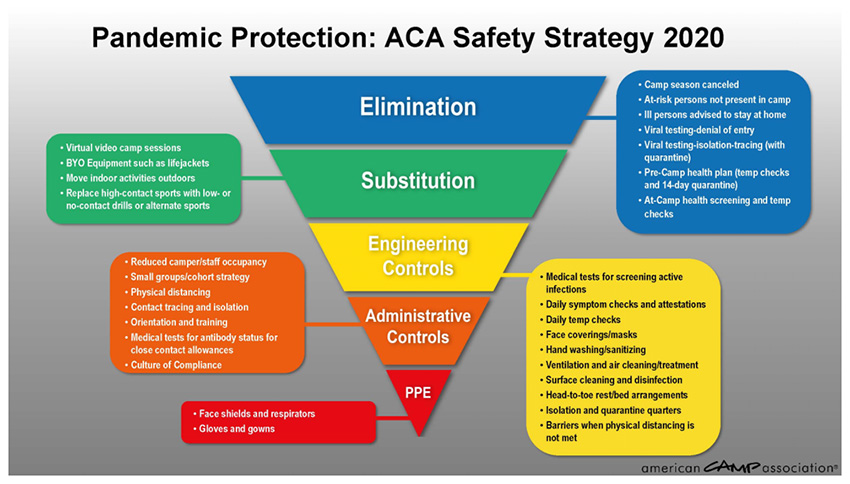ACA Advocating for Critical Financial Support for Camps
ACA recognizes the tragic impact the coronavirus has had on the field of camp. Our current estimates indicate that more than 19 million people who are traditionally served by camps did not have the chance for a camp experience this summer. So many camps are struggling to survive until next summer.
ACA has been working hard to make the critical financial relief needed by so many camps a reality, especially as the next federal relief bill begins to take shape. The following initiatives are a part of the current proposals connected to the next federal relief effort, however details could certainly change based on the timing and nature of the ongoing negotiations between both houses of Congress and the White House.
Maximizing PPP Loans
According to our research, the vast majority of camps were not able to use the summer date field added by the Treasury on April 27 to calculate their maximum loan amounts because of a technicality. Once lending institutions filed their initial Form 1502, loans could not be amended to take advantage of the new date field, effectively blocking camps from realizing the benefit of the additional date field.
According to the most recent reports, the next relief bill includes language that would allow any institution to modify their original PPP loan to take advantage of changes in guidance, regardless of whether or not lending institutions have filed a Form 1502. In many cases, this would allow camps to double their original PPP loan amounts.
Second Draw on PPP Loans
A provision is included in the current draft of the next relief bill to allow businesses with fewer than 300 employees that can demonstrate a 50-percent loss of revenue over a similar period last year to be allowed a second PPP loan. While some of the details may change in negotiations related to the bill, there appears to be bipartisan support for some version of this provision.
Access to Working Capital
ACA continues to push to have camps included in other potential financial vehicles that could supply the critical working capital needed to bridge to the summer of 2021. While it is unclear from negotiations what form this will take, following are instruments under current consideration:
- Main Street Lending Program: On July 17, the Federal Reserve opened its Main Street Lending Program to nonprofits. ACA advocacy efforts decreased the minimum requirements to 10 employees, making the program accessible to a wider number of camps. Details on this program can be found in our recent ACA Now article entitled Camps May Qualify for Main Street Lending Program.
- Economic Injury Disaster Loans: The SBA is authorized to issue EIDL loans up to $2 million. These loans were reauthorized for nonagricultural uses in June. However, they have been effectively capped at $150,000 since being made available again. ACA is working to have the maximum loan size increased to the original $2 million.
- Childcare Relief Funding: While many camps are not regulated at the state level as childcare facilities, ACA is working to have camps included in additional funding to support the ongoing need to help working parents as many schools are moving to hybrid classes to start the school year.
J-1 Visa Exemption
ACA continues to press to have the Camp Counselor J-1 Visitor Exchange program and the camp portion of Summer Work Travel exempted from the current Executive Order suspending many nonimmigrant visas so the recruitment process for 2021 participants can begin without interruption.
State-Level Relief Funding
ACA is developing a toolkit to help camps advocate for state-level COVID-19 support funding. Many states still have COVID-response funds available from the CARES Act. Also, additional funding may be allocated in the next relief bill. The new toolkit will support camps in advocating for states to use this funding to provide relief for camps that were significantly impacted this summer or to fund camps that are supporting schools this fall.
Photo courtesy of iStock / Getty Images Plus via Getty Images.

